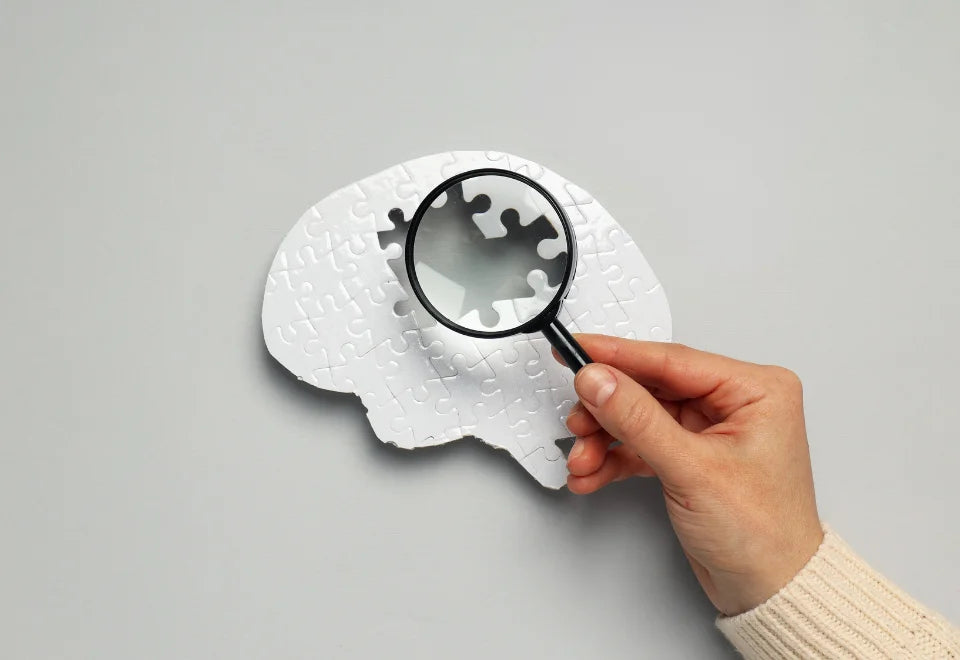Ageing is a natural part of life, but the quality of those years can vary greatly depending on the habits we cultivate. While genetics certainly plays a role in how we age, lifestyle factors—such as diet, exercise, mental health, and daily routines—have an equally significant impact. In this blog, we’ll explore the essential habits for healthy ageing and provide a comprehensive daily longevity checklist to guide you on your journey to a long and vibrant life.
Start small, stay consistent, and watch these habits transform your health over time. Ready to dive deeper? Let’s explore each habit in detail.
Surprising Daily Habits That Shorten Your Life
Healthy ageing starts with daily habits that can shape your long-term well-being. Research shows that consistent actions play a major role in influencing your health and how you age over time.
1. Eating for a Longer, Healthier Life
What you eat has a profound effect on how you age. A diet rich in whole, nutrient-dense foods provides your body with the vitamins, minerals, and antioxidants necessary for cellular repair and maintenance. On the other hand, diets high in processed foods, refined sugars, and unhealthy fats can accelerate the ageing process. Research highlights how nutrition shapes the quality of ageing.
What you eat has a profound effect on how you age. A diet rich in whole, nutrient-dense foods provides your body with the vitamins, minerals, and antioxidants necessary for cellular repair and maintenance. On the other hand, diets high in processed foods, refined sugars, and unhealthy fats can accelerate the ageing process. Research highlights how nutrition shapes the quality of ageing.
Key components of a nutrition-focused diet for promoting longevity:
- Fruits and vegetables: Aim for a variety of colorful options to ensure you get a wide range of vitamins and antioxidants.
- Whole grains: Choose whole grains over refined grains to support digestion and heart health.
- Healthy fats: Incorporate omega-3 fatty acids from sources like fish, walnuts, and flaxseeds, which are known to support brain health and reduce inflammation.
- Lean proteins: Include lean protein sources such as chicken, tofu, and beans to help preserve muscle mass.
- Hydration: Drink plenty of water throughout the day to keep your body hydrated and support healthy skin.
Choose Plant-Based and Anti-Inflammatory Foods
A diet focused on plant-based, anti-inflammatory foods can help reduce inflammation and protect cells. These foods, high in antioxidants and fiber, not only support physical health but may also improve mood and lower the risk of depression.
Include dark leafy greens, colorful berries, cruciferous vegetables, whole grains, and legumes in your meals. These options are packed with nutrients that help fight inflammation and oxidative stress.
Include Omega-3s and Healthy Fats
Omega-3 fatty acids and other healthy fats are crucial for maintaining brain and heart health as you age.
| Food Source | Benefits for Aging |
|---|---|
| Wild-caught salmon | Supports brain and heart health, reduces inflammation |
| Walnuts | Promotes brain and heart health, reduces inflammation |
| Flaxseeds | Enhances brain and heart health, reduces inflammation |
| Extra virgin olive oil | Improves brain and heart health, reduces inflammation |
Boost Gut Health with Probiotics and Fermented Foods
Gut health plays a vital role in aging. Research involving over 9,000 participants found that a more diverse gut microbiome is associated with longer, healthier lives [1].
Add fermented foods like these to your daily routine to promote gut health:
- Plain yogurt with live cultures
- Kefir
- Kimchi
- Sauerkraut
Combining these with plant-based foods creates a supportive environment for beneficial gut bacteria, contributing to overall health and longevity [2].
Relationship Between Gut Health, Nutrition, and Longevity
A healthy gut is crucial for overall well-being and plays a key role in healthy ageing. The gut houses a diverse community of microorganisms, known as the gut microbiome, which influences everything from digestion and immune function to brain health and mood regulation.
Maintaining a balanced and healthy gut microbiome can reduce inflammation, improve nutrient absorption, and protect against chronic diseases, all of which are essential for healthy ageing.
Nutrition is a fundamental factor in maintaining gut health. Diets rich in fiber from fruits, vegetables, and whole grains feed beneficial gut bacteria, supporting a diverse microbiome. Probiotic-rich foods, like yogurt, kefir, and fermented vegetables, introduce live bacteria that further promote gut health. Additionally, prebiotics found in foods such as garlic, onions, and bananas help nourish these beneficial microbes.
By prioritizing gut-friendly foods, you can enhance digestion, support immune function, and reduce the risk of inflammatory conditions, all of which can contribute to healthy ageing.
2. Staying Active to Support Longevity
Role of Physical Activity in Healthy Ageing
Regular physical activity is one of the most powerful tools for healthy ageing. Exercise has numerous benefits that support both physical and mental well-being. For starters, exercise helps maintain a healthy weight, improves cardiovascular health, and enhances muscle strength, which is crucial for maintaining mobility as we age. Weight-bearing exercises, like walking or strength training, can also help preserve bone density and reduce the risk of osteoporosis. Beyond physical health, exercise has a positive impact on mental health by reducing stress, anxiety, and symptoms of depression. It also promotes better sleep, boosts cognitive function, and can lower the risk of age-related conditions like Alzheimer’s disease and other forms of dementia.
Regular activity keeps the body agile, improves balance, and enhances flexibility, which helps prevent falls and injuries, a common concern for older adults.
Role of Longevity Supplements
While regular physical activity and exercise are undeniably among the best ways to promote healthy ageing, certain longevity supplements can further enhance the benefits of an active lifestyle. Supplements like Decode Age NMN are gaining attention for their potential to support cellular health and energy production.
NMN plays a key role in boosting NAD+ levels, a vital compound that naturally declines with age and is linked to various aspects of healthy ageing, including energy metabolism, DNA repair, and inflammation control. By maintaining healthy NAD+ levels, supplements like Decode Age NMN can help enhance physical performance, reduce fatigue, and improve recovery after exercise. This can empower you to stay more active, supporting your longevity goals.
3. Prioritizing Sleep for Better Ageing
Sleep does more than recharge your body - it actively impacts how you age. Studies show that men with good sleep habits live about 4.7 years longer, while women gain an extra 2.4 years compared to those with poor sleep routines [3].
Stick to a Regular Sleep Schedule
Keeping a consistent sleep and wake schedule helps regulate your circadian rhythm, which is key for better rest and a longer life. In a study of over 6,000 people, irregular sleep patterns were linked to a biological age nearly nine months older than those with steady routines.
| Time of Day | Recommended Action | Purpose |
|---|---|---|
| Morning | Wake up at the same time daily | Aligns your circadian rhythm |
| Evening | Start winding down an hour before bed | Prepares your body for sleep |
| Night | Aim for 7-9 hours of sleep | Supports recovery and health |
Create a Sleep-Friendly Environment
Your bedroom setup plays a big role in sleep quality. Keep the temperature between 60-71°F (15.6-22°C) to support melatonin production. Use blackout curtains, white noise machines, and remove electronics from the room to create the perfect sleep environment.
"If people have all these ideal sleep behaviors, they are more likely to live longer." - Dr. Frank Qian, Clinical Fellow in Medicine at Harvard Medical School
Get 7-9 Hours of Restorative Sleep Each Night
Consistent, high-quality sleep offers major health perks. Research shows that people who sleep well are 30% less likely to die from any cause, with a 21% lower risk of heart disease and a 19% lower risk of cancer [3].
During sleep, your body repairs tissues, clears out brain toxins, boosts immunity, and strengthens memory - all crucial for aging well. To improve sleep, try exercising earlier in the day, but avoid intense workouts close to bedtime.
While sleep rejuvenates your body and mind, managing stress is another key factor in ageing healthily.
sbb-itb-55c436e
4. Managing Stress and Supporting Mental Health
Your mental health and stress levels are closely tied to your physical well-being. They influence everything from your gut health to how well you sleep. Chronic stress can speed up aging and affect your overall health, making mental well-being just as important as staying physically fit.
Use Mindfulness and Meditation to Ease Stress
Practicing mindfulness and meditation can lower stress, reduce inflammation, and even strengthen your immune system - all of which contribute to healthier ageing.
| Time Investment | Practice | Benefits |
|---|---|---|
| 5-10 minutes | Guided meditation | Helps reduce stress and sharpen focus |
| 15-20 minutes | Mindful walking | Combines light exercise with mental clarity |
| Throughout day | Mindful eating | Aids digestion and encourages better eating habits |
If you're new to meditation, apps can help you get started and stay consistent. Focus on your breathing and let your thoughts come and go without judgment to find emotional balance.
Build and Maintain Strong Relationships
Social connections do more than just lift your mood - they help regulate stress hormones and can even slow down the effects of ageing. They also play a role in supporting your immune system and overall health.
Here are a few ways to strengthen your relationships:
- Join local hobby or interest groups.
- Set up regular video calls with friends or family.
- Get involved in community events or volunteer work.
Keep Your Mind Sharp with Hobbies and Challenges
Staying mentally engaged can help slow cognitive decline and encourage brain adaptability, which may lower the risk of dementia.
| Activity Type | Examples | Benefits |
|---|---|---|
| Cognitive Challenges | Puzzles, strategy games, learning a new language | Improves memory and problem-solving skills |
| Creative and Social Activities | Painting, writing, book clubs, group discussions | Encourages self-expression, communication, and new ideas |
Try to include at least one activity that stimulates your mind each day to keep your brain active and healthy.
Taking steps to manage stress and keep your mind engaged can go a long way in supporting your health and longevity. Combine these with other healthy habits to give your body the best chance to age gracefully.
How Longevity Supplements Help
As we age, achieving restful sleep can become more challenging. Supplements like Decode Age Mag7, a magnesium complex containing seven different forms of magnesium, can play a helpful role in improving sleep quality.
Magnesium is known for its calming effects on the nervous system, helping to reduce stress and anxiety—common culprits of poor sleep. It also promotes relaxation by supporting healthy muscle function and regulating the production of melatonin, the hormone that controls the sleep-wake cycle.
By supplementing with Mag7, you can help replenish magnesium levels that may decline with age, encouraging deeper, more restorative sleep.
5. Healthy Lifestyle Choices for Aging Well
Making smart lifestyle changes can lower your risk of chronic diseases and help you feel better as you age. Here are some steps to help you maintain your health and vitality.
Quit Smoking and Watch Your Alcohol Intake
In India, approximately 1.35 million people lose their lives each year due to tobacco use. Giving it up - even later in life - can greatly improve your health, reducing inflammation and other risks.
Alcohol consumption is a leading risk factor for premature death and disability, contributing to nearly 3 million deaths worldwide each year.
When it comes to alcohol, moderation is key. Here's a quick guide:
| Alcohol Guidelines | Women | Men |
|---|---|---|
| Daily Limit | 1 drink | 2 drinks |
| Weekly Maximum | 7 drinks | 14 drinks |
| Alcohol-Free Days | 2-3 per week | 2-3 per week |
Stay on Top of Health Checkups
Routine health checkups can help identify and address potential health issues early. Prevention is always easier than treatment. Here's what to keep in mind:
| Screening Type | How Often | Why It’s Important |
|---|---|---|
| Physical Exam | Once a year | Tracks overall health |
| Blood Pressure | Every 6-12 months | Keeps heart health in check |
| Cholesterol | Every 4-6 years | Monitors cardiovascular health risks |
"Regular health checkups are essential for maintaining health and preventing chronic diseases", says Dr. David Danskin from Kansas State University.
How BloodAge Test Helps
To truly understand your ageing process, Decode Age’s BloodAge test can offer valuable insights into your biological age, helping you make informed decisions about your health. This test provides a deeper understanding of how well your body is ageing at the cellular level, allowing you to stay proactive with health checkups and adjustments to your lifestyle. By integrating health tracking tools like Decode Age’s BloodAge Test into your health routine, you can enhance your longevity and ensure your later years are full of vitality, confidence, and well-being.
Take Care of Your Skin and Stay Hydrated
Your skin is your first line of defense against external damage, and staying hydrated is key to keeping your body functioning well. Diane M Becker from Johns Hopkins School of Medicine emphasizes:
"Hydration is crucial for maintaining skin health and overall bodily functions."
Make it a habit to apply SPF 30+ sunscreen daily, wear protective clothing, and avoid direct sun exposure during peak hours (10 am - 4 pm). For hydration, aim for at least 8 cups of water a day. Dehydration can lead to higher cortisol levels, which may speed up aging [3]. Keep a water bottle handy to sip throughout the day.
These steps are most effective when introduced gradually and consistently. Small, manageable changes to your routine can lead to big improvements in your health and well-being over time.
How Longevity Supplements Help
Longevity supplements like Decode Age Spermidine and OptiAge Collagen Peptides can significantly contribute to skin health and hydration. Spermidine, known for its ability to promote autophagy (the body's natural process of cellular cleanup), supports skin regeneration and reduces the appearance of fine lines, helping to keep your skin youthful and vibrant. Collagen supplements can also play a vital role by boosting skin elasticity and hydration, which naturally declines as we age.
Conclusion: Start Building Your Longevity Routine Today
Building a strong foundation for healthy ageing involves a mix of good nutrition, regular exercise, quality sleep, and stress management. These elements work together to support your body and help it age more smoothly.
While supplements can be a helpful addition, they should work alongside core habits. The best results come from combining targeted supplements with the foundational practices.
FAQs
Can nutrition really affect how I age?
Yes, what you eat plays a crucial role in the ageing process. A well-balanced diet rich in whole foods—such as fruits, vegetables, whole grains, lean proteins, and healthy fats—provides essential nutrients that support cellular repair, brain health, and immune function. Antioxidant-rich foods, in particular, can help combat oxidative stress, which accelerates ageing at the cellular level. Reducing processed foods, added sugars, and unhealthy fats is also important for maintaining optimal health as you age.
How can I improve my sleep quality as I age?
As we age, sleep patterns can change, making it more challenging to get restful sleep. To improve sleep quality, establish a consistent sleep schedule by going to bed and waking up at the same time each day. Create a relaxing bedtime routine—such as reading, listening to calming music, or practicing relaxation techniques—to signal your body that it’s time to unwind. Avoid caffeine and electronic screens close to bedtime and ensure your sleep environment is comfortable and conducive to rest.
What are some effective ways for stress management as I get older?
Stress management is vital for healthy ageing. Practicing mindfulness or meditation can help lower cortisol levels and improve emotional resilience. Regular physical activity, such as walking or yoga, can also reduce stress and promote a sense of calm. It’s important to engage in activities that bring you joy and allow you to relax, whether it’s spending time with loved ones, pursuing hobbies, or simply enjoying quiet time in nature.
How important is social connection for healthy ageing?
Strong social connections are crucial for longevity. Studies have shown that maintaining close relationships with family, friends, and community members can significantly improve mental health, reduce stress, boost immune function, thus promoting healthy ageing. Loneliness and social isolation, on the other hand, are associated with increased risks of depression, cognitive decline, and cardiovascular diseases. Stay engaged with others through regular social activities, volunteering, or joining clubs that align with your interests.
Is it too late to adopt healthy habits for promoting healthy ageing?
It’s never too late to start adopting healthy habits for ageing well. Even small changes, such as incorporating more physical activity like exercise, improving your diet, getting enough sleep, or managing stress, can have a significant impact on your health and quality of life. Whether you're in your 40s, 50s, or beyond, adopting these habits can help improve your longevity and enhance your overall well-being. The key is consistency and commitment to making positive choices.




























Leave a comment
All comments are moderated before being published.
This site is protected by hCaptcha and the hCaptcha Privacy Policy and Terms of Service apply.